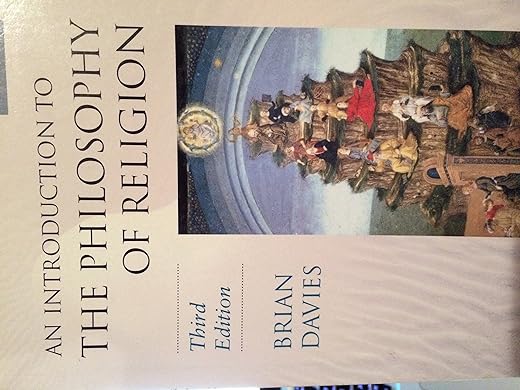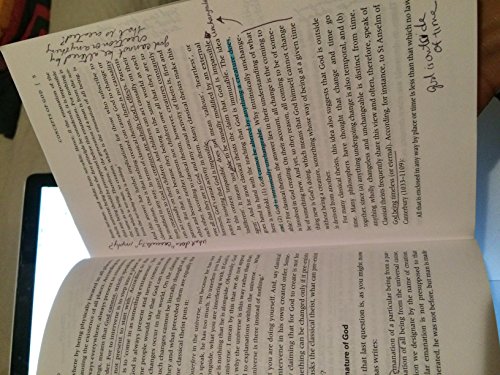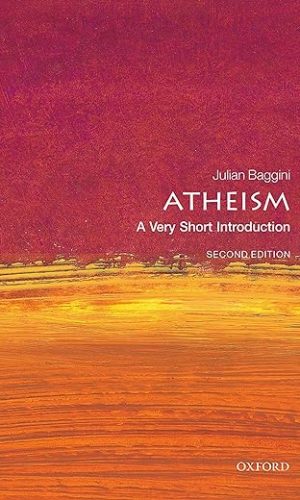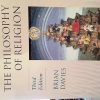An Introduction to the Philosophy of Religion
£26.60
In this book, Brian Davies provides a critical examination of some fundamental questions posed by religious belief. Completely rewritten in order to cover the latest developments in the field, the new edition of this highly successful textbook will once again prove the ideal introduction for all students of the philosophy of religion. The book is highly accessible and covers all the key elements of a course in the philosophy of religion. It is designed to complement Brian Davies’ Philosophy of Religion: A Guide and Anthology, although the book can also be used as a stand-alone introduction.
Read more
Additional information
| Publisher | 3rd edition (8 Jan. 2004), Oxford University Press, USA |
|---|---|
| Language | English |
| Paperback | 333 pages |
| ISBN-10 | 0199263477 |
| ISBN-13 | 978-0199263479 |
| Dimensions | 21.54 x 14.17 x 1.75 cm |





by nathan
Good all round
by C. S. Caps
I am not a professional philosopher or theologian but I have more than a passing interest in philosophy. My views on God do not need to be described in detail, suffice to say I am more atheist than anything else. However, I do find the ideas around religion interesting and, seeing the second edition of this text in a bookshop, I thought I would give it a go. Any agnostics or atheists that are not quite as fanatical as Dawkins may well consider giving this a read. I would suggest approaching with caution.
The problem is something that Davies alludes to in a sense and that is something I would describe as an ‘unbridgeable chasm’. I can’t exactly recall where he discusses the idea, it might be in the morality and religion section, that there are two contrasting views that cannot really be reconciled or have one idea supersede the other. I would say there is a similar chasm for atheists/strong agnostics and theists. The two groups can debate the fundamentals of religion – its value,its arguable flaws, its viability as a theory etc. – but once you start looking deeply at explicitly religious concepts, it can get tiring for the non-believer. Therefore, the first half has a relevance to the non-religious – the different arguments surrounding the ideas of God – are fine. They hold a clear bias and some ideas are given a bit of an easy ride while others bear a great deal of criticism. However, the critical reader should find the ideas stimulating though, most likely, not persuasive. It’s probably worthwhile, at this point, mentioning that the discussions in this edition are somewhat out of date and I imagine that this could be a criticism laid at the latest edition. With the burst of the New Atheism, these ideas may well need reviewing in the light of arguments of Dawkins, Dennett and the like. If the 3rd edition was 2004, it was probably just as the New Atheism movement was really taking form and so another review is probably necessary. I would also hope the newer edition would consider in greater detail scientific theories regarding the nature and the origins of the universe, possibly considering multi-verse theories. Something perhaps to check before purchase.
It is with the second half of the book, looking at morality, eternity and the like, that the book becomes tedious. It assumes that we accept certain possibilities of God and so hearing various contrasting theories founded on suppositions that a non-believer would not suppose makes for tiring reading. I am not saying that there can’t be discussions between the two groups – though I believe the arguments would be cyclical rather than conclusive – this book does not provide the forum of that debate. It is very much within the context of religion, of classical theism and, more specifically, Christian concepts. This is fine for a believer or a strong sympathiser of Christianity but, for anyone else, this is likely to often seem daft, if not irritating.
This is not meant to be a criticism of the book, as such. The book itself is reasonably well-written, although it does seem to sympathise with a logicistic (if that’s the right term) way of thinking and structuring of argument. However, I think a casual reader or, more likely, a non-Christian one, may well consider looking at this subject and I would certainly recommend checking the other books available for a more even-handed read. For someone studying theology, the philosophy of religion, religious ethics or anything else along these lines, however, if they are sympathetic to the views of this book, they would do well to have it for total reading or even simply for reference. In conclusion, atheists beware.
by Mr. V. Norman H.
Great book
by Beth and Ged Charlton
Brian Davies at his best! Advanced material, great for A2.
by Barry Tebb
the best introduction to the subject,balanced and clear
by “jack_lennon”
Comprehensive introduction to philosophy of religion for a teacher who has never taught it at A level.
by -tjm-
I bought this book 25 years ago on 15/7/95, and have finally finished it today – 15/7/2020. It didn’t take me that long to read, I just hadn’t got round to reading it. Having said that, I enjoyed the experience. I would say quite challenging and focus needed to follow the arguments, with rereading of passages. Not dryasdust and some humour too. Favourite chapters Eternity (not in edition 3) and Life after Death, although this last chapter did make me feel our prospects after death are rather bleak – so I’m forced to imagine my own more cheerful ones.
by Tony
i don’t love the book personally, it looks very dull but my daughter required it for her A levels.
BUT the ‘second hand’ quality is great, we wouldn’t know it was second hand and it was delivered promptly